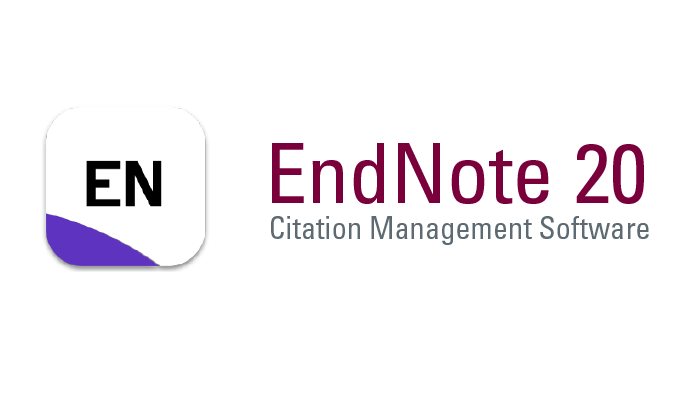EKSISTENSI REKAMAN VIDEO DALAM KASUS TINDAK PIDANA PERZINAAN MENURUT HUKUM ISLAM
DOI:
https://doi.org/10.47887/amd.v3i1.84Keywords:
Evidence, Videotape, Adultery, Lewd, Video Camera, Porn FilmsAbstract
Evidence has a significant position in the court process, where this evidence becomes a means that can be used to strengthen arguments in a trial in court. Therefore, this evidence should not be left behind if someone wants to prove a case in a court case, both involving criminal cases and civil cases. Evidence takes various forms, according to cultural developments and times. In the past, there was never any audio-visual electronic evidence, but now it is visible in our lives, such as video camera recordings. Some of the recordings are positive that educate, and some are negative that are not educational, such as recordings of lewd scenes (porn films) which are often exposed by the masses through the internet or multimedia player devices that function to play CD/VCD/DVD recordings of these lewd scenes. Ironically, it turns out that the actors in the scene are Muslims who are carried away by the flow of promiscuity in the midst of the life of the nation and state which tends to be secularistic-individualistic. In this study the author examines three things. First, the cause and wisdom of adultery is forbidden in Islam; Second, the provisions of the procedural law for proving the crime of adultery in Islam; and Third, the position of the evidence of video camera recordings related to the crime of adultery according to the procedural law of proof in Islam. Thus, the author hopes that this study will provide comprehensive benefits regarding the criminal case of adultery and the procedural law applicable in Indonesia for the perpetrators.
References
Abdurrahman, A.A, Humam. 2004. Peradilan Islam Keadilan sesuai Fitrah Manusia. Ciputat : Wadi Press Telaga Ilmu. Cet. I
Al-Amidi, Saifuddin Abu al-Hasan Ali bin Ali bin Muhammad. 1996. Al-Ihkam Fi Ushuli al-Ahkam, Bairut : Daru al-Fikr. Juz IV. Jilid II
Al-Banhawi, Muhammad Abdu al-Fattah, al-Nisyawi, Nashir Ahmad. 1998-1999. Al-Qadha’ Wal Al-Jihad Fi Al-Islam, Thantha-Egypt : Maktabah Jami’atul Azhar Al-Syarif.
Al-Bassam, Abdullah bin Abdurrahman. Taudhihu al-Ahkam Min Bulughi al-Maram, 1997. Makkah al-Mukarramah :Al-Nahdhah al-Haditsah. Juz V. Cet. III
Al-Maliki, Abdurrahman, al-Da’ur, Ahmad. 2004. Sistem Sanksi dan Hukum Pembuktian dalam Islam. Bogor : Pustaka Thariqul Izzah, Cet. I
Al-Muwaththa’ Imam Malik
Al-Shabuni, Muhammad Ali. 2001. Rawai’u al-Bayan Tafsir Ayat al-Ahkam Min Al-Qur’an, Jakarta : Daru al-Kutub al-Islamiyah. Cet. I. Juz II
Al-Syafi’i, Ibnu Hajar al-‘Asqalani. 1996. Taqribu al-Tahdzib. Bairut : Muassasah al-Risalah. Cet. I
Al-Zahrah, Abu Muhammad. 1998. Al-Jarimatu Wa al-‘Uqubatu Fi al-Fiqhi al-Islamiy, al-‘Uqubat, Cairo : Daru al-‘Arabi
Al-Zuhaili, Wahbah. 1991, Al-Tafsir al-Munir. Bairut : Daru al-Fikr, Cet. I. Juz IV
Al-Zuhaili, Wahbah. 2004. Al-Fiqh Al-Islami Wa Adillatuhu, Bairut : Daru Al-Fikr. Juz VII
Audah, Abdu al-Qadir. t.thn. Al-Tasyri’ al-Jinaiy al-Islamiy. Bairut : Daru al-Kitab al-‘Arabi. Juz I
Buletin Dakwah AL-ISLAM, Jum’at 18/6/2010. Syari’ah Membabat Pornografi dan Seks Bebas. Jakarta : Hizbut Tahrir Indonesia. Edisi 511. Tahun XVI
Departemen Agama. 1418 H/1997. Al-Qur’an dan Terjemahnya. Saudi Arabia : Lembaga Percetakan Mushhaf Raja Fahd bin Abdul Aziz.
http://pamungkas-harapanku.blogspot.com, Kontroversi Penyewaan Rahim, diakses 15 april 2012
http://www.detikhealth.com, Sewa Rahim di Indonesia dilakukan diam-diam, diakses 23 april 2012
Husaini, Adian. 2001. Rajam Dalam Arus Budaya Syahwat, Jakarta : Pustaka al-Kautsar, Cet. I
Ibrahim, Johnny. 2006. Teori dan Metode Penelitian Hukum Normatif. Malang : Boymedia Publishing
Kitab Undang-Undang Hukum Pidana (KUHP) serta Komentar-Komentarnya Lengkap Pasal demi Pasal. 1991. Bogor : Politeia
Madkur, Muhammad Salam. 1979. Peradilan Dalam Islam. Surabaya : PT. Bina Ilmu
Mertukusuno, Sudikno. 2002. Hukum Acara Perdata Indonesia, Yogyakarta : Liberty. Edisi VI
Muslich, Ahmad Wardi. 2005. Hukum Pidana Islam. Jakarta : Sinar Grafika. Cet I
Sabiq, Sayid. 1980. Fiqh al-Sunnah, Bairut : Daru al-Fikr. Juz II
Shahih Bukhari
Shahih Muslim
Sunan Abu Daud
Sunan al-Tirmidzi
Sunan Ibnu Majah
Syaltut, Mahmud. t.thn. al-Fatwa. Cairo : Daru al-Qalam.
Thahan, Mahmud. 2005. Ilmu Hadits Praktis. Bogor : Pustaka Thariqul Izzah. Cet. I
Wibowo, Arrianto Mukti. 1999. Kerangka Hukum Digital Signeture dalam Electronic Commers. Makalah
Zallum, Abdul Qadim. 2002. Sistem Pemerintahan Islam. Bangil : Al-Izzah. Cet. III
Zuhdi, Masjfuk. 1997. Masail Fiqhiyyah Kapita Selekta Hukum Islam. Jakarta : Toko Gunung Agung. Cet. X
Downloads
Published
How to Cite
Issue
Section
License
Copyright (c) 2022 Isnu Cut Ali, Muhammad Yunus

This work is licensed under a Creative Commons Attribution-ShareAlike 4.0 International License.
Authors retain copyright and grant the journal right of first publication and this work is licensed under a Creative Commons Attribution-ShareAlike 4.0 that allows others to share the work with an acknowledgement of the works authorship and initial publication in this journal.
All articles in this journal may be disseminated by listing valid sources and the title of the article should not be omitted. The content of the article is liable to the author.
Authors are able to enter into separate, additional contractual arrangements for the non-exclusive distribution of the journal's published version of the work (e.g., post it to an institutional repository or publish it in a book), with an acknowledgment of its initial publication in this journal.
Authors are permitted and encouraged to post their work online (e.g., in institutional repositories or on their website) prior to and during the submission process, as it can lead to productive exchanges, as well as earlier and greater citation of published work.
In the dissemination of articles by the author must declare the Al-Madaris Jurnal Pendidikan dan Studi Keislaman as the first party to publish the article.














